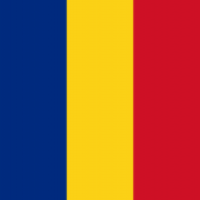Summary:
Established in Transylvania in 2018, the Romanian social and environmental initiative is specialized in sustainable activities, such as education and green events, waste management, composting, vermiculture etc. Thus, the Romanian team would like to identify partners (e.g. start-ups, SMEs, NGOs, investors, universities) to conclude outsourcing agreements for waste management projects through vermiculture.
Description:
In 2018 a young Romanian engineer specialized in the energy sector, established an project as an initiative group who funded their own pilot programme designed to collect and manage biodegradable and composting organic scraps out the households without possibility of local composting. The entire waste management pilot programme is documented online, in social media etc.
The Romanian engineer started as a sustainability worker at festivals and, having a background (both knowledge and experience) in electro-energetics, she educated herself in climate change, circular economy and waste management.
After a couple of years of “on site” experience, being the first one in Romania to compost food scraps through vermiculture, the engineer became among the few specialists in vermiculture and vermicomposting from the country.
Vermiculture, the science of breeding and raising earthworm, defines the thrilling potential for waste reduction, fertilizer production, as well as an assortment of possible uses for the future. Vermicomposting is the process of producing organic fertilizer or the vermicompost from bio-degradable materials with earthworms. Composting with worms avoids the needless disposal of vegetative food wastes and has the benefits of high quality compost.
Today, the Romanian initiative is based on five directions:
1. educating/ informing the public by organising green events, as most of the festivals and events are taking place without consulting a sustainability specialist, resulting in enormous quantities of waste generated (since the law regarding waste management is clearly pointing that the focus should be on prevention);
2. design and develop suitable containers - compost bucket suitable for collecting and transporting the waste - prototypes for circular economy principles. A prototype is in the testing phase;
3. develop a plant with automatic sanitation;
4. rethink a mobility solution for wate disposal - by car, by train or drones (hazardous waste);
5. waste composting in a compost station equipped with a laboratory; since the solution for composting food scraps is still in a developing stage, and considering that the fruits and vegetables on the market are chemically treated, the chances that the result of the composting process to be disastrous are really high that’s why the entire process needs to be observed step by step.
The Romanian project team has in plan to find locally support from the community, companies and from the government; it would also like to access funding lines launched by the ministry of environment and climate change for the circular economy projects.
The Romanian initiative aims to expand its knowledge; therefore it is looking for international partners (e.g. Start-ups, SMEs, NGOs, investors, universities), within the frame of outsourcing agreements for waste management projects through vermiculture.
Type (e.g. company, R&D institution…), field of industry and Role of Partner Sought:
The suitable partners are Start-ups, SMEs and NGOs working in the creative field and willing to start a new project or have a sustanability related project in progress and are looking for partners, in the frame of outsourcing agreements.
The projects of interest comprise professionals from interdisciplinary background as education, services, industry, with a focus on climate change, circular economy, waste management and vermiculture.
The partners should provide all the specific requirements and should be involved in the process of the project.
External code:
BORO20200521001








